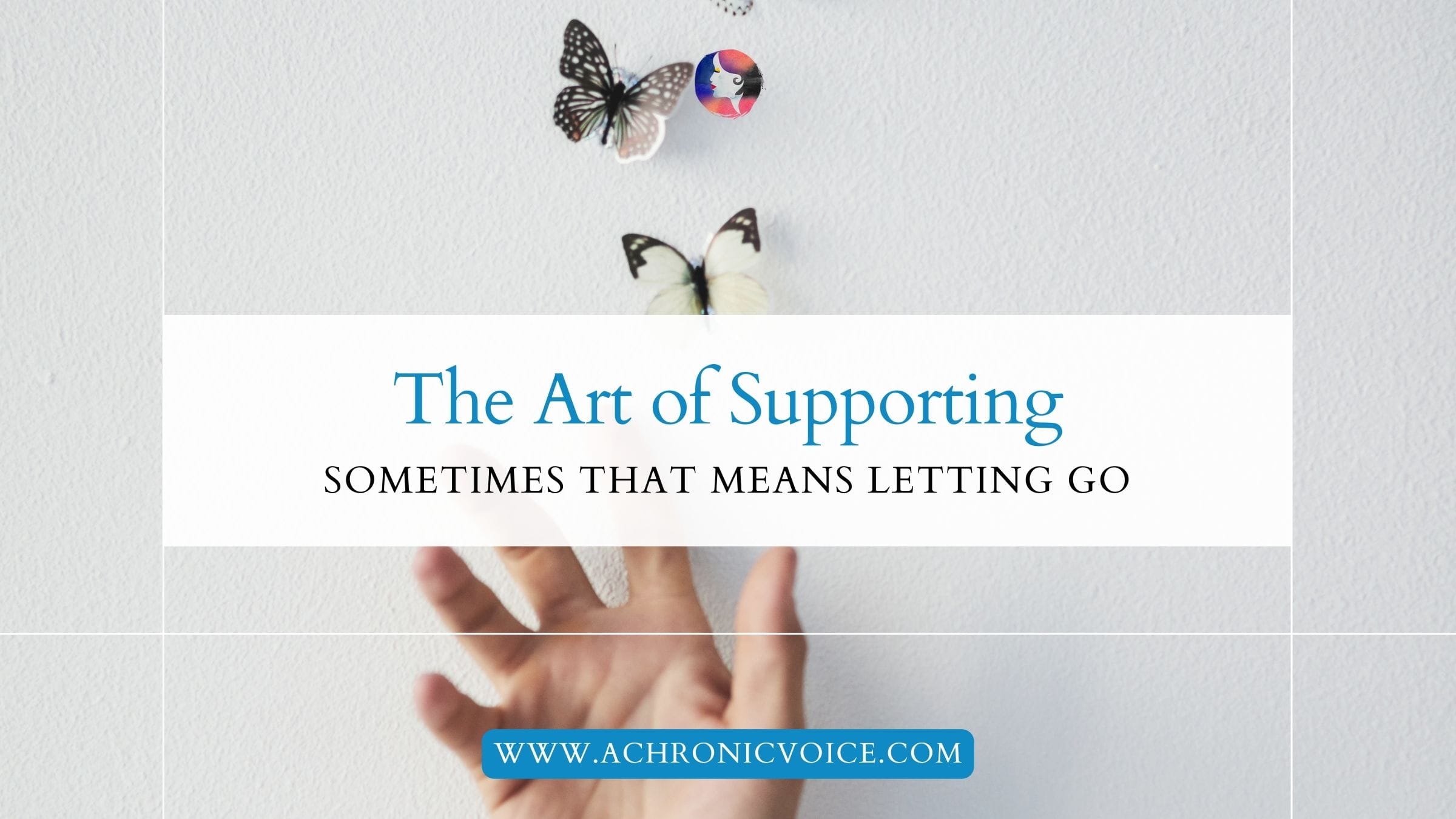“We cripple people who are capable of walking because we choose to carry them.” - Christie Williams
What is the "Best" Way to Show Your Support?
If I were to ask you - "what do you think is the best way to show your support to a loved one in need?", what would your answer be?
Perhaps the first few virtues that come to mind would be "patience", "kindness", or "unconditional love". These are important facets to the art of supporting without a doubt. Yet, even with such a fantastic support network after my near death experience from a pulmonary embolism and multiple DVTs, I was still immensely depressed.
*Disclaimer: This article is meant for educational purposes, and is based on my personal experiences as a patient. I am not a doctor, and nothing in this article should be substituted for medical advice. Please consult your own doctor before changing or adding any new treatment protocols. This post may also contain affiliate links. It will cost you nothing to click on them. I will get a small referral fee from purchases you make, which helps with the maintenance of this blog. Read our Privacy Policy page for more information. Thank you!
The Depression That Comes with Major Loss of Independence
The first time I stood up after being confined to a hospital bed for 2 months was a huge psychological blow; the muscles in my legs had wasted away, and I remember collapsing as if they were made of straws. It is frustrating, scary even, when your brain knows the sequence of movement, yet the rest of your body is unable to follow through with that instruction.
As a result, I had to be confined to a wheelchair for another few months, and my mother became my hands and legs. What this means is that there is zero privacy, and you become dependent much like a helpless toddler. I needed her assistance to move around, fetch things, take a shower, get dressed, and even needed to be spoon fed.
Realisation of How "Different" I was Now, When I Returned to School
As I was being wheeled back to school, it dawned on me just how different I was from everyone else now. It wasn’t just the physical disability that stood out, but my mental and social agility had also taken a huge blow.
For a while my main communication had consisted of basic words like "water", "bedpan" and "pain", and I struggled to fit back into a "normal" routine. Everyone around me was unaware of this struggle; they probably thought I was "okay now, just because I was present.
The fact that I had to be so dependant on my mother for physical needs did not help with the transition. She became so absorbed with providing care to the point where I had to tell her to stop, as it was starting to cause more harm than good. It took a while and was a frustrating process learning how to complete basic tasks all over again.
The Art of Supporting in Practical Ways
I remember my best friend, Valerie, picking me up from the hospital after a surgery once, and then asking me on the same day itself if I could help out with a job she had on hand. I agreed and spent the next few days squatting by the bed in pain (it was the only bearable position), working away on my laptop. But it was a great feeling - that someone had unwavering faith in me despite my temporary handicap.
Not once has she ever treated me like someone who needs sympathy, or who is unable to fend for herself. Even as I limp along or curl up in pain, she continues to make conversation, and I can tell that she considers me her equal as a human being. One does not have to be afraid of offending a sick person, if your actions are sincere.
What is the Problem With Showing Too Much Concern?
Empathy, care and concern is desperately needed in this world and in modern society, yet too much of it can hinder growth and recovery, both in a physical and psychological sense. My depression only began to lift when I realised that I was "useful" again; that I wasn’t a worthless human being wasting before my own eyes. I had gotten so used to being cared for, that I had forgotten what freedom felt like.
Each of our individual circumstances differ, so I am not saying that this is applicable as a fixed rule. I would simply like to share what I have learned through my own experiences, and how it snapped me out of my depressive stupor. I hope this perspective helps someone else, somehow, too.
"There is only one way ... to get anybody to do anything. And that is by making the other person want to do it." - Dale Carnegie






Member comments